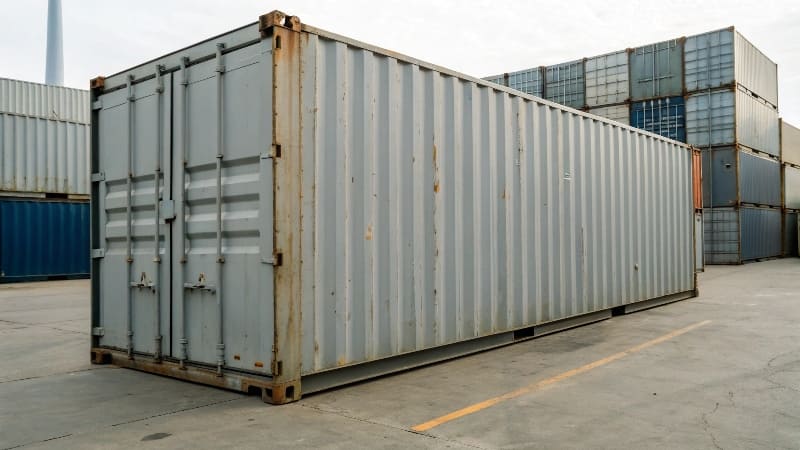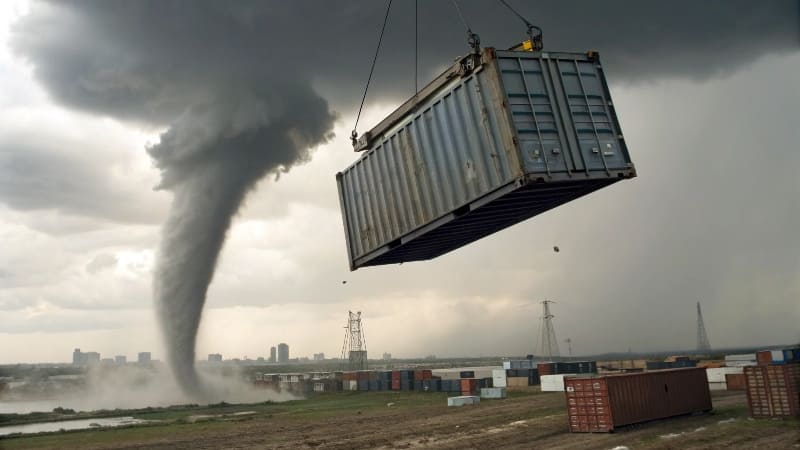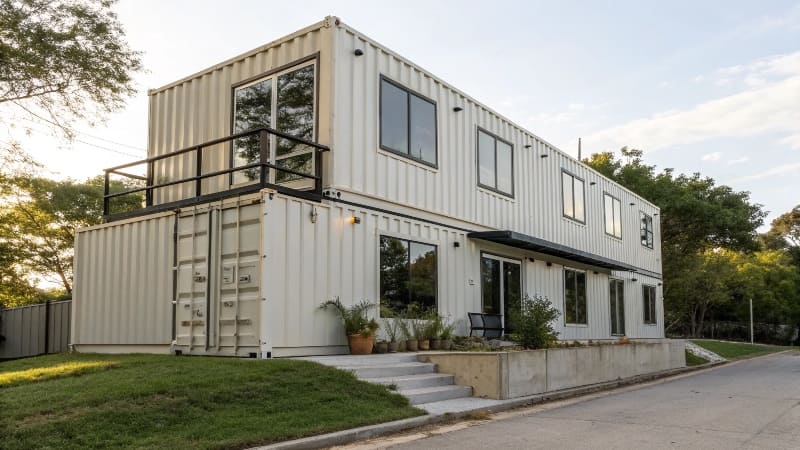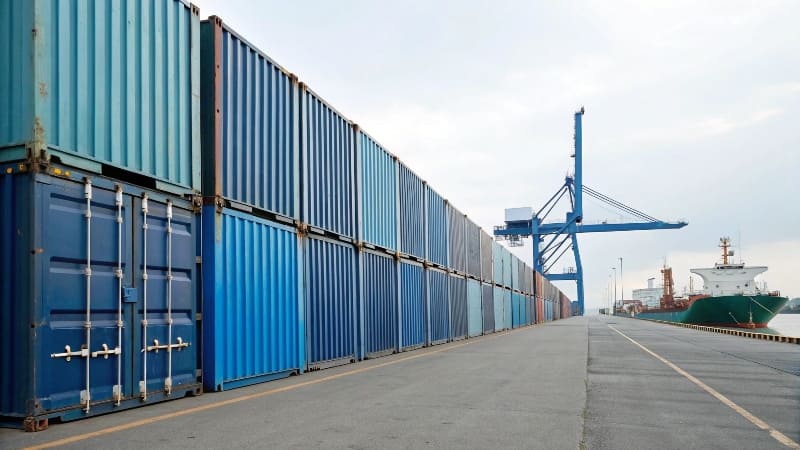How much does a 20 feet container cost?
Many people see a single low price online and assume a container is a quick, cheap solution — but the market reality is very different.
A new 20ft shipping container generally costs $2,500–$3,500, while a used container in good condition is $1,200–$2,200, depending on age, location, and market demand.
I’ve seen buyers budget only for the container itself, only to be surprised later by transport, crane unloading, and preparation fees, which can easily add $500–$1,500.
Can a tornado pick up a 40 ft shipping container?
This question always comes with a tone of disbelief, but it has a real answer.
A 40ft shipping container can weigh 4 tons empty and over 30 tons loaded. An EF5 tornado could potentially move an unsecured empty container.
Strong tornadoes have winds above 200 mph. These can shift heavy objects if they are not fixed in place. But a properly installed container home is anchored to a reinforced concrete foundation with steel tie-downs. In one case I saw, a container office in a severe storm zone survived with only cosmetic damage, while nearby wooden structures were destroyed.
| Container State | Weight Range | Tornado Impact Potential |
|---|---|---|
| Empty 40ft | 3.8–4.2 tons | EF4–EF5 winds could tilt or move it |
| Loaded 40ft | 25–30+ tons | Unlikely to move without structural failure |
| Anchored 40ft home | Varies | High resistance, better than many wooden houses |
The key isn’t just the container’s weight, but how it is secured.
How much does it cost to build a 2000 sq ft container home?
Many envision it as just “stacking boxes together,” but the total build cost tells another story.
A finished 2000 sq ft container home typically costs $150,000–$300,000, or about $75–$150 per sq ft, depending on design, location, and finishes.
For this size, you’ll need 8–10 high cube 40ft containers. Costs include not only the units, but also foundation, insulation, windows, electrical, plumbing, interior finishes, roofing, and building permits.
Here’s a basic breakdown:
| Cost Item | Typical Range (USD) | Notes |
|---|---|---|
| Containers (8–10 units) | 24,000 – 45,000 | High cube recommended |
| Foundation | 10,000 – 20,000 | Concrete slab or pier system |
| Modifications & welding | 15,000 – 30,000 | Cutting, framing, reinforcements |
| Insulation & interior | 50,000 – 120,000 | Walls, flooring, finishes |
| Utilities & systems | 20,000 – 40,000 | Plumbing, electrical, HVAC |
| Total | 150,000 – 300,000 | Large variation by location/design |
I’ve seen clients’ total costs approach standard home costs. The real advantage is speed, durability, and modular flexibility, not extreme savings.
What is the most common shipping container?
Many assume there is a wide variety in active use, but in fact, the global fleet is dominated by just a few types.
The standard 20ft and 40ft dry cargo containers make up about 90% of all shipping containers in the world.
For building projects, high cube versions of these are often preferred since they offer an extra foot of internal height — about 2.7m interior clearance compared with the standard 2.4m.
Here’s a simple list:
| Container Type | Length | Height | Usage Share | Best Use in Building |
|---|---|---|---|---|
| 20ft Dry Standard | 20’ | 8’6” | Very high | Small modules, storage units |
| 40ft Dry Standard | 40’ | 8’6” | Very high | Large space, primary structure |
| 40ft High Cube | 40’ | 9’6” | Growing | Full-height rooms, living spaces |
I once helped a client switch from standard to high cube units during design, and that extra headroom completely changed the comfort level of the finished home.
Conclusion
Buying or building with containers isn’t just about price tags — it’s about knowing structural limits, hidden costs, and matching the right container type to the right job.
TRUSUS – Bring beauty to every corner of the world
www.gypsum-board.com



